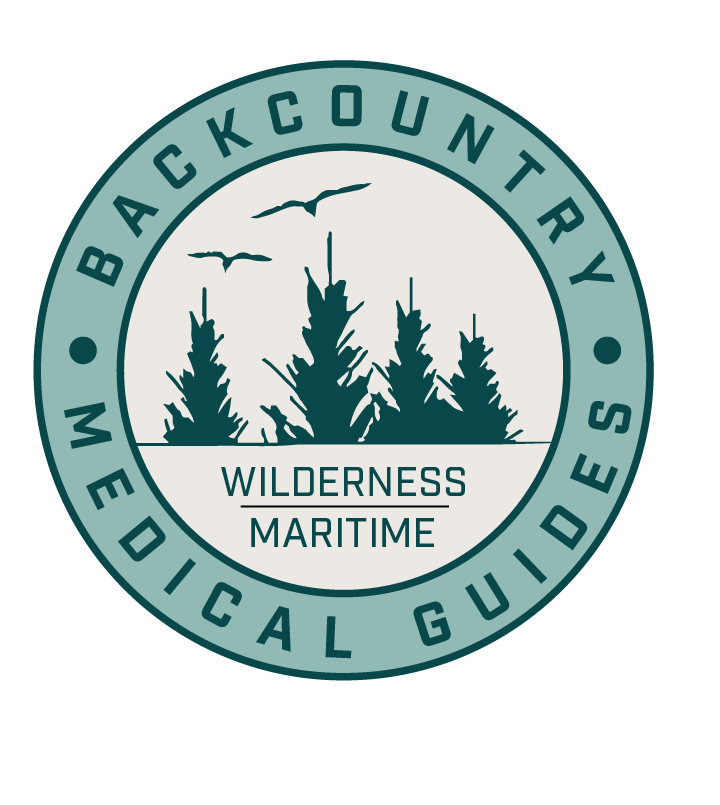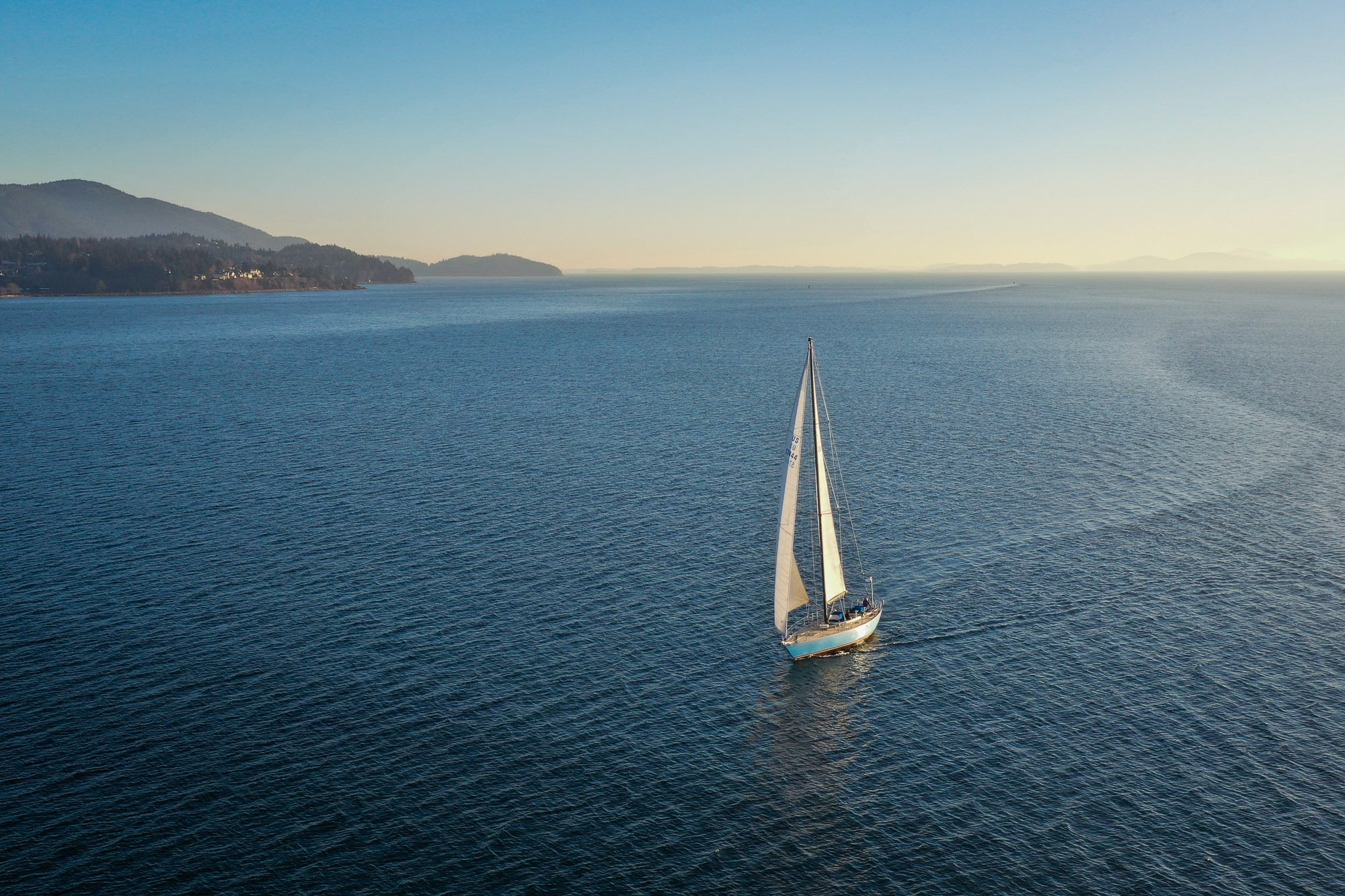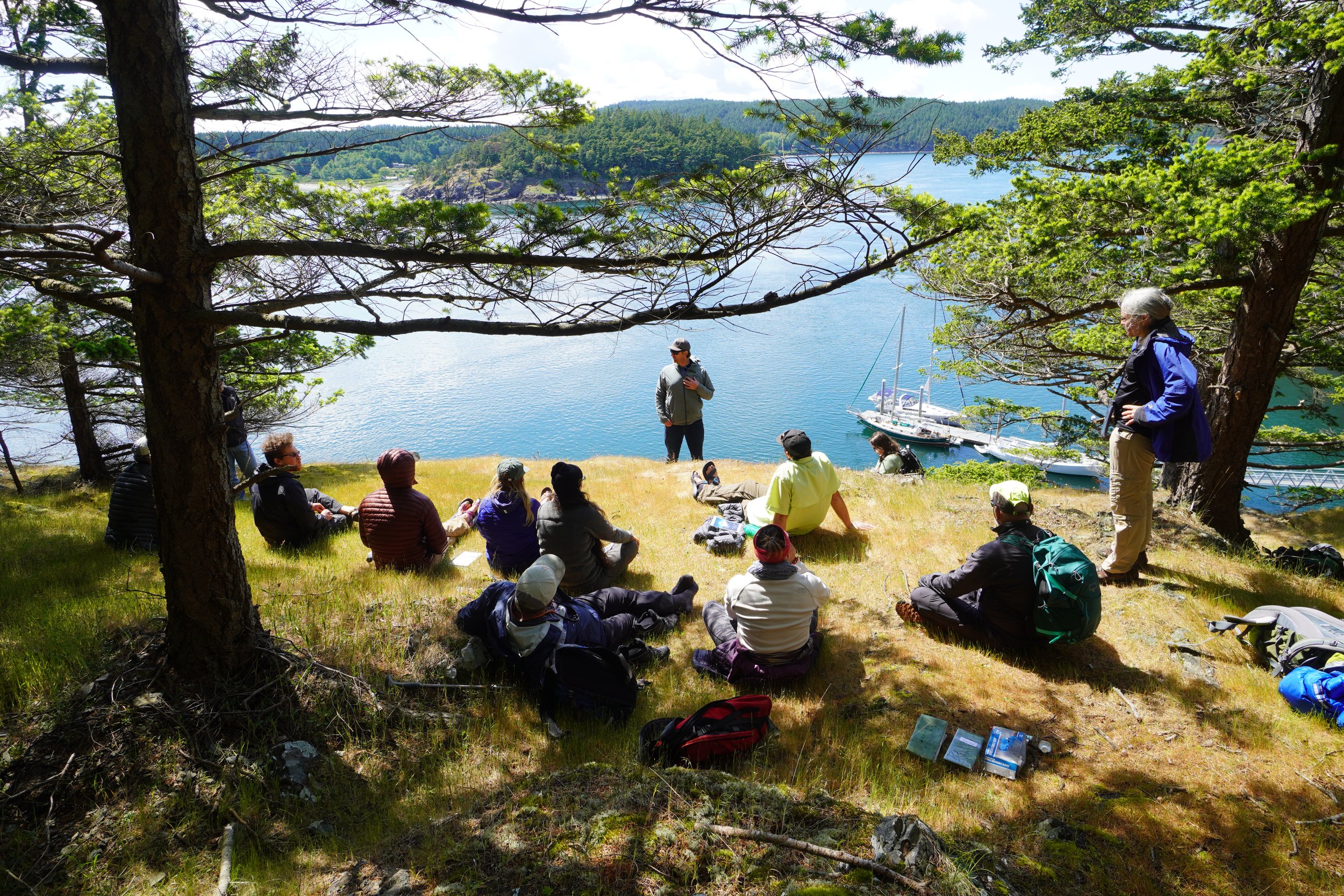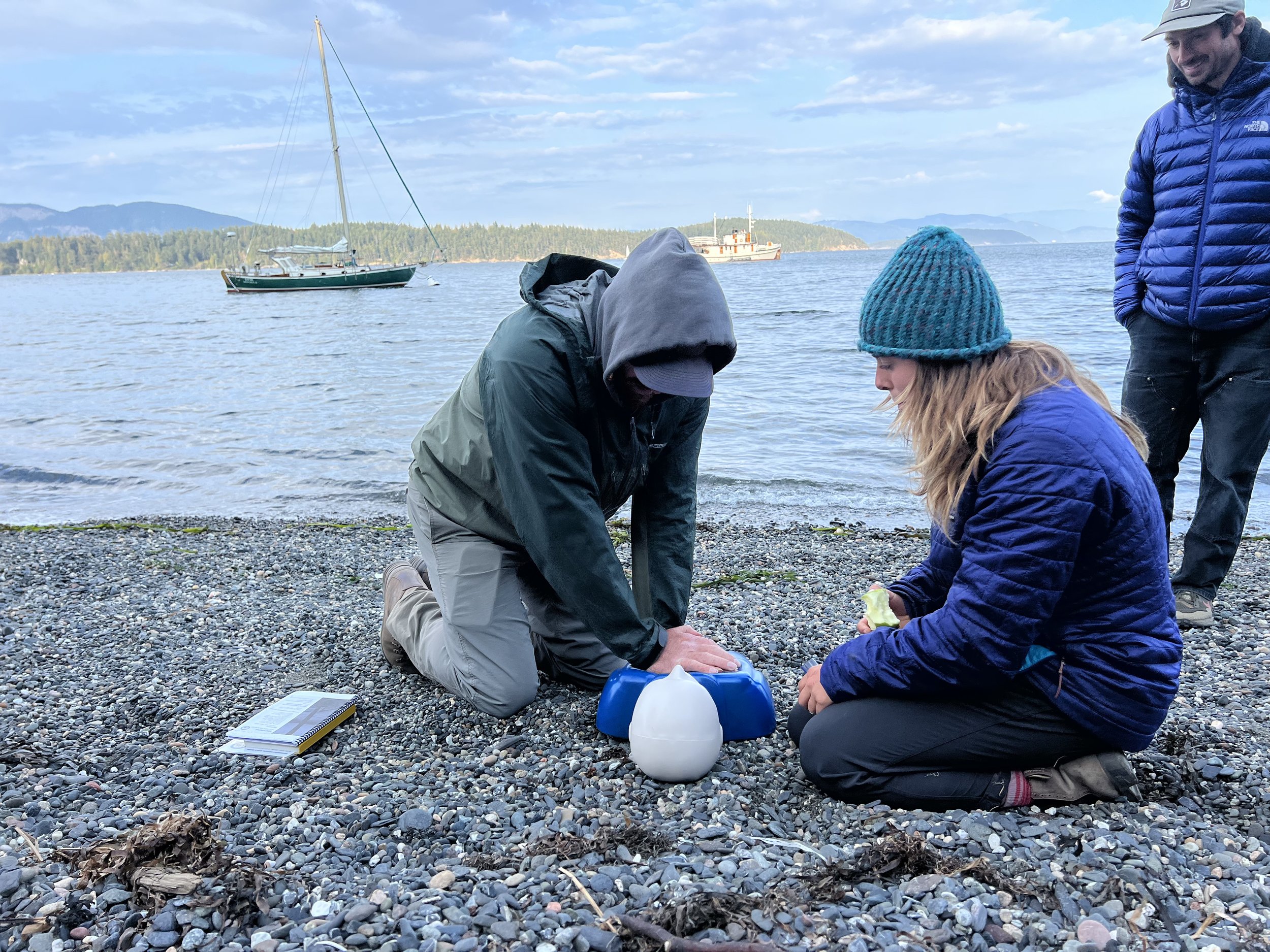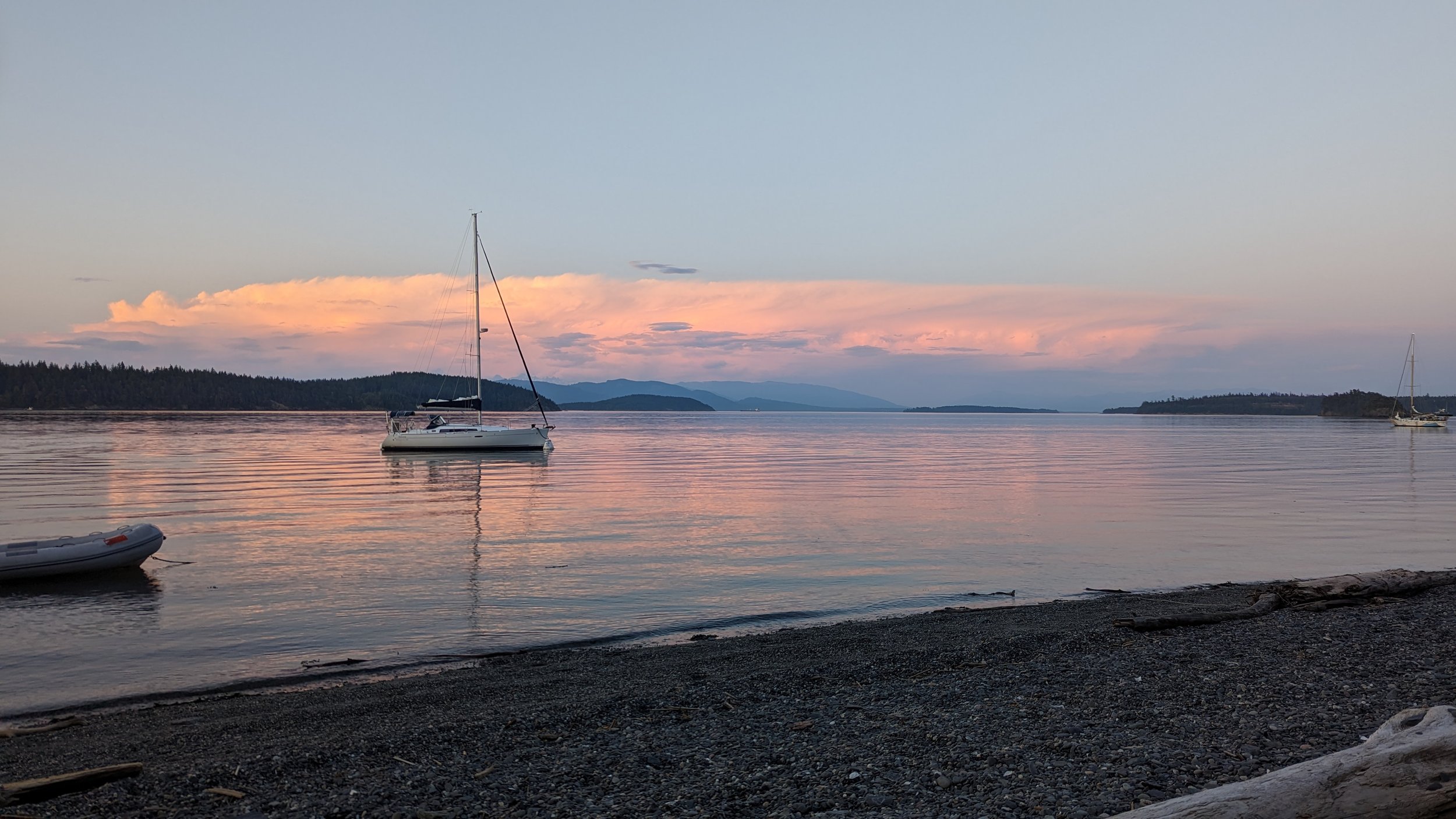San Juan Islands, WA | WFR
San Juan Islands, WA | WFR
This is an epic sailing and camping trip! The San Juan Archipelago consists of over 100 named islands sandwiched between the Strait of Juan de Fuca and the Strait of Georgia. This gorgeous cluster also boasts some of the most well-protected public marine reserves and trails in the country. With an abundance of unspoiled nooks and coves, charming coastal towns, and rich history, this Maritime WFR has almost limitless itineraries depending on the wind direction and tide profile. No sailing experience required.
May 18-23, 2025
July 27- August 1, 2025
September 14-19, 2025
When you’re far from shore, having the appropriate medical training and skills can make or break unexpected critical situations.
Our immersive Maritime Wilderness First Responder course combines the internationally recognized WFR curriculum with real-world maritime hazards and scenarios to help make your sailing and sea-bound adventures safer and more enjoyable. During this course our guides will train you how to prevent, manage, and treat a range of common emergencies that you may encounter in the wilderness and maritime setting. This course combines online self-paced precourse work with a highly immersive sailing and camping trip in the San Juans. You will complete the online learning portion on your own time prior to the in-person skills training and assessment in the San Juans.
-
Wilderness First Responder, valid for 2 years
CPR/AED certifications, valid for 2 years
Washington Epinephrine Auto Injector certification, valid for 2 years
Our WFR curriculum satisfies the Wilderness Medical Society’s published recommendations for Wilderness First Responder curriculum and is certified by our Medical Advisory Board.
Accreditations Include:
World Sailing Offshore Special Regulation (OSR 6.05) Medical Training requirement
US Sailing Senior First Aid Requirement
United States Coast Guard: Elementary First Aid training requirements of Section AVI/1 and Table A-VI/1-3 of the STCW Code and 46 CFR 11.202(b)(3); AND if presented within one year of the date of training, the First Aid and CPR training requirements of 46 CFR 11.205(e)(1)(ii) and 11.205(e)(2)(iii) for original issuance of an officer endorsement.
-
During this 80-hour course, our guides will train you how to prevent, manage, and treat a range of common emergencies that you may encounter in the wilderness and maritime environment. This course combines online self-paced precourse work with a highly immersive camping and sailing training trip in the beautiful San Juan Islands. You will complete the online learning portion on your own time prior to the in-person skills training and assessment in the San Juans.
This combination of focused learning and practical experience provides you with the conceptual knowledge and hands-on skills to face common emergencies that you may experience while exploring the wilderness. Expect to work hard, get out in nature, make new connections with other like minded people, and learn a ton about maritime medicine.
By the end of the course, you will:
Build strong patient assessment skills
Demonstrate common treatments of traumatic injuries and life threats
Recognize and treat medical emergencies
Prevent, recognize, and treat environmental emergencies
Learn improvisation, evacuation, and rescue techniques
Practice pre-trip and expedition planning
Practice preventative strategies
-
The San Juan Islands are truly unique in the maritime world. This gorgeous cluster of islands boasts some of the most well-protected public marine reserves and trails in the country. With an abundance of pristine moorings and anchorages, charming coastal towns, and rich history, the Salish Sea host our Maritime WFR and offers almost limitless itineraries depending on the wind direction and tide profile.
-
Day 1
We will meet at Squalicum Harbor at 8:00AM for a 8:30am departure to one of the beautiful islands in the San Juans. Once we hit land we will unload, set up camp, and begin a lesson before having dinner.
Days 2 - 4
Our days will begin early, meeting at 7:15AM for breakfast. Then the class will spend the days hiking, practicing skills, and running scenarios both on land and on the boats. We will have a lunch break around noon and dinner will be served around 6:00PM.
Days 5 & 6
The group will break camp early, have breakfast, and set sail to relocate to a new island where the last nights will be spent. On the last day the course will end at 6:00PM back at Squalicum Harbor.
*The itinerary is fluid and is subject to change for safety and weather/ environmental factors including wind, rain/ snow, Air Quality Index, trail closures, traffic considerations, etc.
*All meals are included.
-
For our program, participants should be able to hike up to 7 miles, comfortably, on steep and variable terrain. Actual mileage may range from 3-7 miles per day. Your assistance with sailing the boats will also be needed while underway. The skills that are taught in this program require the ability to get up and down from the ground, kneeling, squatting, and some lifting. Please contact BMG if you would like more information about fitness requirements.
-
All of our programs have a minimum age requirement based on physical intensity and/or the mature nature of the online and in-person content. The minimum age for this program is 18. Anyone under 18 who wishes to participate requires a guardian’s consent as well as a chaperone (who must also enroll in the course). We reserve the right to make exceptions to this policy depending on circumstances. If you have any questions, please reach out to info@backcountrymedical.org to see whether an exception is possible.
-
This course is held rain or shine and will require clothing suited for the weather. The following is a list of recommended gear you will need to bring with you:
Camping gear: tent, sleeping bag, sleeping pad
Camping plate, bowl, mug, and utensils
Foul weather gear
Hat (sun hat or warm hat)
Gloves
Sunscreen
Sunglasses
Rain jacket
Warm layers
Long sleeves for sun protection
Appropriate footwear for hiking
Water bottle
***A manual with lecture notes is provided at the beginning of the course and can be used to take notes.
-
We are excited to welcome you to beautiful Bellingham, Washington! There’s a reason (many, actually) BMG is headquartered here, most notably our incredible access to all our favorite kinds of recreation. We look forward to showing you some of our go-to trails and beaches!
Where to Stay:
Bellingham has no shortage of convenient places to stay, most of which are within a short drive of our program locations. BMG has a local rates with the following hotels:
Holiday Inn & Suites Bellingham
Both are located near the airport, only a few minutes outside of town.
“I was completely blown away not only by the engaging labs and realistic portrayal of the scenarios, but also by the fun and friendships founded over the week. This was one of the most memorable adventures I’ve had. Studying the WFR curriculum while fully immersed in a sailing, hiking, camping expedition was an adventure to remember—type two fun at its finest... We built a level of trust, collaboration and understanding that only comes from real-world practice of scenarios out in the wild. An incredible backcountry medical educational experience.”
